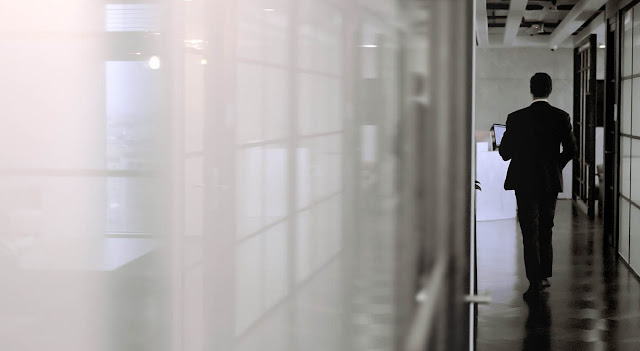Why we (still) believe in Private offices?
Offices historically were used as an area for people
to get their work done, however since that isn't needed any longer, what main
purposes do they serve?
In today's connected world, most employees will work
anyplace they have an online connection. Because of cloud technology, email,
and video conferencing, more and more staff is choosing flexible schedules
where they'll work from home, a coffeehouse or a co-working office
space. Thus, what is the purpose of offices, and why do they still
exist? Offices historically served as a place for people to get their work
done, however, an office is not needed
for that any longer. However, no matter how connected and mobile we get,
offices are not going anywhere, particularly after they serve three main
purposes:
Foster collaboration and communication.
Even with the simplest technology, there is only so
much collaboration you do virtually. Things just seem to flow better, and
colleagues will communicate more clearly after they are in the same physical
area. Even casual collaboration and communication, like bumping into a
co-worker while getting coffee or sharing a bus with someone on the way into
the office, create a stronger bond amongst employees and allows ideas and
communication to flow more smoothly. Organizations understand the importance of
this, that is why many of them still need workers to show up in the office even
only one day per week, no matter however versatile their schedule.
Build transparency.
The future of work is all about employee flexibility, however, managers still wish to see what their
employees are engaged in. By being in the
same private
workspace, employees at each level will have a better plan of what's
happening in the company and what their colleagues are up to, which might help
them see their role in the larger goals of the organization. Being in an office
also provides employees more accountable for their work. Once employees will
see and act with managers and executives in the private workspace, it minimizes the probabilities for office
scandal and illegal activity--after all, it's more durable for leaders to move
money or create bad trades if there are people around to see what is happening.
Many organizations follow the example of Facebook, that has an open office space
where even CEO Mark Zuckerberg works among his staff, creating a blandish
atmosphere and a more cohesive company culture, that may ne'er be kept away
from an office.
Create expertise.
This is the highest reason offices still exist, and
it's growing more important as the future of work builds. A growing variety of
companies are turning towards additional artistic private workspace
areas with a sleek design, open areas,
and plenty of perks. These private office spaces do not just exist so
employees will have fun--their purpose is to make employee expertise. Once workers have a fun place with programs and
perks, they are excited to come to work and feel more connected to the company.
An experienced-based office is a competitive advantage because it helps
employees feel valued and offers them a place they want to come.
As we tend to move to progress, more corporations can
start making experiences in the private
workspace. Offices could be over just simple
workstations now; however, they
are still important to how an organization functions, and that won't escape any
time soon.



Comments
Post a Comment